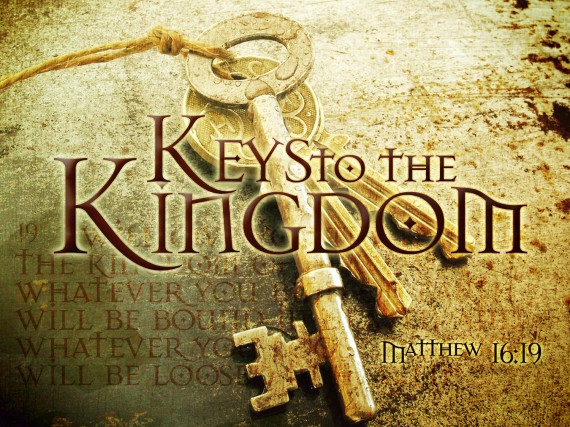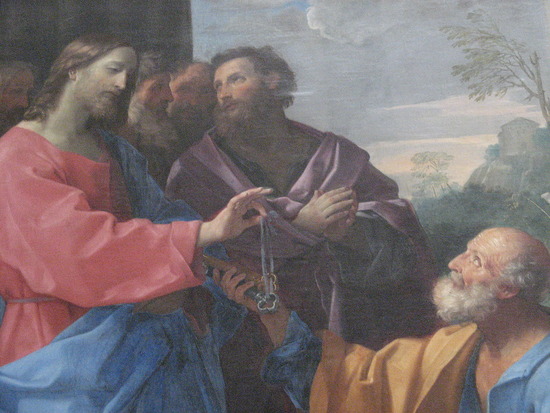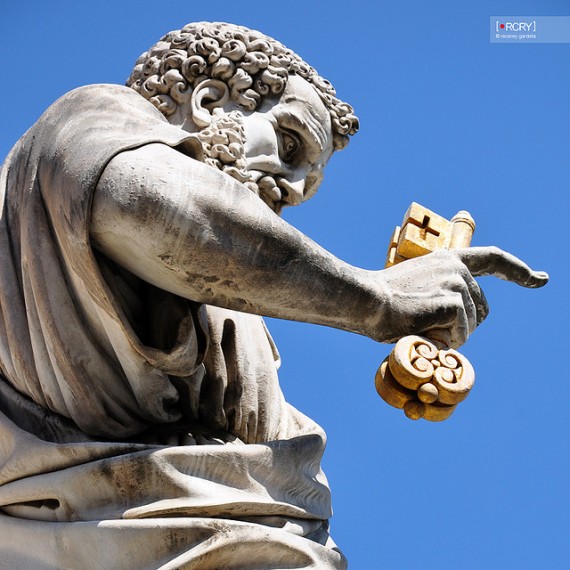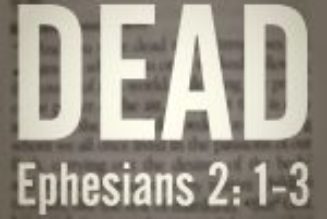In this Redeeming God Podcast episode, we discuss the Second Impeachment of President Trump, a question from a reader about the warning passage of Hebrews 6:1-8, and then look at Matthew 16:19 and what Peter did with the keys of the kingdom that he received from Jesus.

Trump Impeachment 2.0
Impeachment 2.0 begins next week. The Democrats are seeking to impeach President Trump for causing insurrection on January 6 at the Capital building in Washington D.C.
Pretty much like everything the Democrats do, this impeachment trial is completely unconstitutional and a waste of time and money. Trump did nothing wrong, and certainly did not incite an insurrection. The Democrats should focus on something that actually helps this country and the people in it.
1. Completely unconstitutional
Only sitting elected officials can be impeached. President Trump is no longer in office, and so cannot be impeached.
Impeachment trials must be presided over by the Chief Justice of the Supreme Court. Chief Justice Roberts knows that this trial is unconstitutional, and so has declined to preside over the trial, which makes it makes it even more unconstitutional.
2. Complete waste of time and money
Senator Rand Paul recently forced a vote in the Senate to condemn this trial as unconstitutional. 45 senators agreed, meaning 55 voted to proceed with the trial.
For impeachment to occur, the Senate needs 67 votes. If only 55 senators voted to hold the impeachment trial, it is extremely unlikely that 67 will vote to impeach.
This impeachment sham is dead on arrival, making it a complete waste of time and money. There are certainly bigger issues in our country right now that deserve the attention of our elected officials in Washington DC. But their hatred for Trump blinds them to the desperate needs of the people they are supposed to represent.

3. Trump did nothing wrong. He certainly did not incite an insurrection
It is completely moronic for anyone to claim that Trump incited an insurrection.
First, there was no violent rhetoric that incited an insurrection. If there was, fake news channels like CNN would be playing it nonstop. But there aren’t any statements from Trump that incited any sort of violence. I have been engaged in numerous email and social media exchanges in the last month were people accused Trump of “violent rhetoric.” In every case, I ask for actual Tweets or statements from Trump that called for violence, and so far, nobody has produced a single one. However, there are numerous statement from democrats over the past four years, including Biden and Obama, that actually do call for violence against others. If we are impeaching former (or current) political office holders for statements that incite violence, then quite a number of democrats should be immediately impeached.
When people say that Trump engaged in hate speech, what they actually mean is that Trump said things that they hate. But there is a vast difference between hate speech and someone saying things you hate. Trump often said things that his detractors didn’t like, but, unlike many democrats, he never called for violence or an insurrection. Similarly, there are many, many things that other people say that I hate. But as a believer in the first amendment, I will always defend their right to say them.
Second, there was no insurrection. Instead, there were a couple hundred thousand people who gathered at the capitol building to practice their right to assemble and their right to free speech.
Third, those who did made it into the Capital Building were escorted in by Capital Police, and did not engage in any violence. Despite AOC’s irrational fears, she was not in danger of being murdered. She wasn’t even in the building! But even if she was in the building, nobody was going to cause her any harm. (And by the way, did you know that Susan Rosenberg, a board member of a BLM organization actually did detonate a bomb in the capital building on Nov 7, 1983? She was pardoned for her actual insurrection by Bill Clinton.) Watch the dozens and dozens of videos all over the internet about how the people at the capital were escorted in by the police and how they walked orderly and calmly between the velvet ropes into the capitol building. There was no violent insurrection. There was no insurrection, period.
Fourth, even if it could be proven that there was a violent insurrection did occur, it cannot be proven that Trump caused it. Reports and studies have shown that the plans to enter into the capital building were made days before Trump ever spoke on January 6. If there had been an actual insurrection, it is impossible for Trump to incite it if the plans for it had already been made days earlier.
All in all, impeachment 2.0 is a sham, just like it was the first time. All it reveals is that the Democrats don’t care about the constitution, don’t care about due process, don’t care about free speech, and most of all, don’t care about you and me, the people of the United States. Rather than do something helpful for the great needs of the citizens they serve, they are instead wasting time, money, and energy on a pointless impeachment. They are consumed by hatred for Trump and a lust for power. These things will become more and more obvious in the weeks and months ahead.
Letter from a Reader
I read a book that was talking about Hebrews 6 & that some “mature Christians” could possibly choose to turn away from God and renounce their salvation. And if they did, God would give them over to a reprobate mind and there would be no hope of returning to Him. Fear entered in and I literally started having mega blasphemous thoughts & felt like I was possessed, it was so bad. I thought I had committed the unpardonable sin & that’s why it was happening. But, I read your book on the unpardonable sin & realized that I had not committed it & I can’t commit it, as I was born again as a child.
There are lots of terrible books and teachings out there about Hebrews 6, mostly due to the fact that people misunderstand several key terms in the book… I cover all these key terms in my online course “The Gospel Dictionary.”
I also wrote about this passage in book What is Hell? and taught about it in a previous podcast episode. There are also several lessons in my online courses that deal with this text. Here are few links from my website for further reading:
Do the warning passages of Hebrews 6:7-8 and Hebrews 10:27 refer to Christians going to hell?
The Keys of the Kingdom in Matthew 16:19
Here is what Jesus says to Peter in Matthew 16:19:
And I will give you the keys of the kingdom of heaven, and whatever you bind on earth will be bound in heaven, and whatever you loose on earth will be loosed in heaven.”
There are two main ways this verse has been misunderstood. The first is in Pentecostal theology where people use this for name-it-and-claim-it theology where if you just “bind” something on earth God in heaven is required to give to you what you claim. Other Pentecostals use this verse to teach about binding Satan and demonic spirits with the power of heaven.
But these words from Jesus were spoken directly to Peter in response to his statement that Jesus was the Christ, the son of the living God (Matt 16:16). Due to Peter’s confession, Jesus gave the keys of the kingdom to Peter. Since all the personal pronouns in Matthew 16:19 are second person singular (“you” rather than “you all”), Jesus is not making a blanket statement to all the disciples that we all have the keys of the kingdom. No, these spiritual and symbolic keys of the kingdom were given to Peter alone.

Secondly, we also must also avoid the Catholic mistake of thinking that this verse teaches the Catholic doctrine of apostolic succession. This doctrine teaches that in Matthew 16:19 Jesus gave special authority to Peter to make pronouncements about church doctrine and policy, and this doctrine was passed down from Peter to the various Popes in church history. This is an improper way of reading the text as well, for while the spiritual keys of the kingdom were “given” to Peter directly, he used them during his life to unlock the doors of the kingdom to the various people groups of the world, and once the doors were unlocked and opened, the keys of the kingdom served their purpose and we no longer needed.
It is also important to note that the construction of the Greek terms in this verse (future perfect passive periphrastic participle, if you really want to know … and it’s just fun to say) indicate that what is bound and loosed on earth were already bound and loosed in heaven. Peter is to carry out on earth the decisions that were already made in heaven. The keys of the kingdom do not give Peter the ability to do whatever he wants with them, thereby forcing heaven to bind or loose whatever Peter chooses. No, Peter is to bind and loose that which has already been bound or loosed in heaven.

So what are the keys of the kingdom and how were they used?
What is it that Peter is binding and loosing?
It helps to remember that the kingdom of heaven is the rule and reign of God on earth. So the keys of the kingdom are not a blank check which draws on the riches and power of heaven or a special authority to make rulings on all church-related matters. No, Jesus is telling Peter that it is his responsibility to take the message of the kingdom of heaven to the rest of the world and unlock the benefits and blessings of the kingdom for them. There are three times in the book of Acts where we see Peter use the keys of the kingdom for this purpose.
These three times are foreshadowed in Acts 1:8.
Scholars have often noted that Acts 1:8 contains the outline of the book. The good news of the kingdom started with Jesus in Jerusalem, but it spread from there to the rest of Judea, and then to Samaria, and ultimately to the end of the known world. But what is less often noted is the role Peter played in this spread of the message of the kingdom, and especially how Peter opens the doors of the kingdom to the Jews, Samaritans, and Gentiles.
In Acts 1:7-8, Jesus said the sign of the coming of the kingdom will be the arrival of the Holy Spirit. As the truths of the kingdom come upon various people groups in Acts, Peter also gives them the blessing of the Holy Spirit, which is the evidence that they have been invited to participate in the kingdom of heaven.
Peter opens the Doors of the Kingdom to the Jews in Acts 2
In Acts 2, Peter explains to the Jews that their King Jesus is on the throne, and that in Him and in all who believe in Him, the kingdom of heaven has arrived (cf. Acts 2:30-36). Peter explains in his sermon that the coming of the Holy Spirit indicates that the rule of God on earth had arrived (Acts 2:17-21). Peter indicates later that he knows this message will be spread further, to those who are afar off, to whomever God may call (Acts 2:39). In the next several chapters, the message continues to spread among the Jewish people.
Peter opens the Doors of the Kingdom to the Samaritans in Acts 8
In Acts 8, Philip, one of the early church leaders, preaches the gospel to the Samaritans. As he does so, unclean spirits are cast out of people and the lame are healed (Acts 8:7), showing that the newly born church is beginning to storm the gates of hell, just as Jesus promised (Matt 16:18). However, none of the new believers in Samaria had received the Holy Spirit. Why not? Because Peter had not yet opened the gates of the kingdom to them. Yet in Acts 8:17, Peter travels to Samaria to do this very thing, and when he lays his hands upon them, they receive the gift of the Holy Spirit, proving that God has invited the Samaritans into the kingdom of heaven as well.
Peter opens the Doors of the Kingdom to the Gentiles in Acts 10
Finally, Peter opens the door to the Gentiles in Acts 10:24-48. A Gentile named Cornelius summons Peter, and after Peter explains the gospel to him and his family, they believe the message and the Holy Spirit comes upon them all. This is the third use of the keys of the kingdom, and the doors of the kingdom have now been opened to the Jews, the Samaritans, and the Gentiles. After this, Peter fades away in the book of Acts, to the point where he is not even mentioned again after Acts 15. He fulfilled his task of opening the doors the kingdom so that the gospel could be preached to all people.

The message of the Kingdom spreads to the Rest of the World in Acts 19
The gospel going to the rest of the world is found in Acts 19:1-10. A Jewish man named Apollos had been teaching and preaching about Jesus even though he only knew about the baptism of John (cf. Acts 18:24-25). So Priscilla and Aquila took him aside and taught him more fully about Jesus (Acts 18:26). When Paul arrived, he taught Apollos and the believers there about the baptism of the Holy Spirit and laid hands on them so that they might receive the Spirit (Acts 19:6). When some spoke in tongues and prophecy, this was the sign that the Spirit had moved beyond just the borders of Israel and was now spreading to the rest of the world.
It was not necessary for Peter to unlock the doors of the kingdom in Ephesus, however, for the doors had already been unlocked to every people group. The signs and wonders of the Spirit simply indicated that the gospel of the kingdom of heaven was now spreading over the face of the earth.
What the Keys of the Kingdom in the Book of Acts teaches us about miraculous signs, wonders, and tongues
This brings up the important point about the miraculous signs and wonders that accompanied the initial giving the Holy Spirit to the various people groups. These miraculous signs were needed to prove that the gates of the kingdom had been opened to these new groups of people. We must not assume, as some do, that miraculous signs and events will always accompany the giving of the Holy Spirit. They don’t.
After the initial arrival of the Spirit in Acts to the various groups of people, the Spirit thereafter comes immediately and silently to all who believe in Jesus for eternal life. No special anointing is needed, and no miraculous wonders are required as evidence for the regeneration, indwelling, baptism, or sealing work of the Holy Spirit in our lives. Peter used the keys of the kingdom to unlock the gates of the kingdom to all people on earth, so that now all are welcome to enter into the gates with thanksgiving and experience the rule and reign of God in their lives with great joy. The gates have been opened and will never be shut again (cf. Rev 21:25).
Matthew 16:19 and the Keys of the Kingdom
Matthew 16:19 shows that God has always accepted and invited everyone and anyone into His kingdom, that is, into His ways of doing things. Through the actions of Peter “unlocking” the doors of the kingdom on earth, what has always been true in heaven is also shown to be true on earth. Everyone is welcome to participate in the rule and reign of God, and all the blessings this rule entails.
Join Our Telegram Group : Salvation & Prosperity










